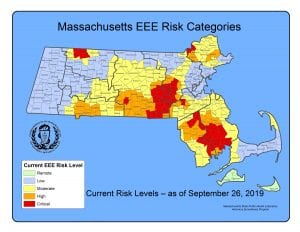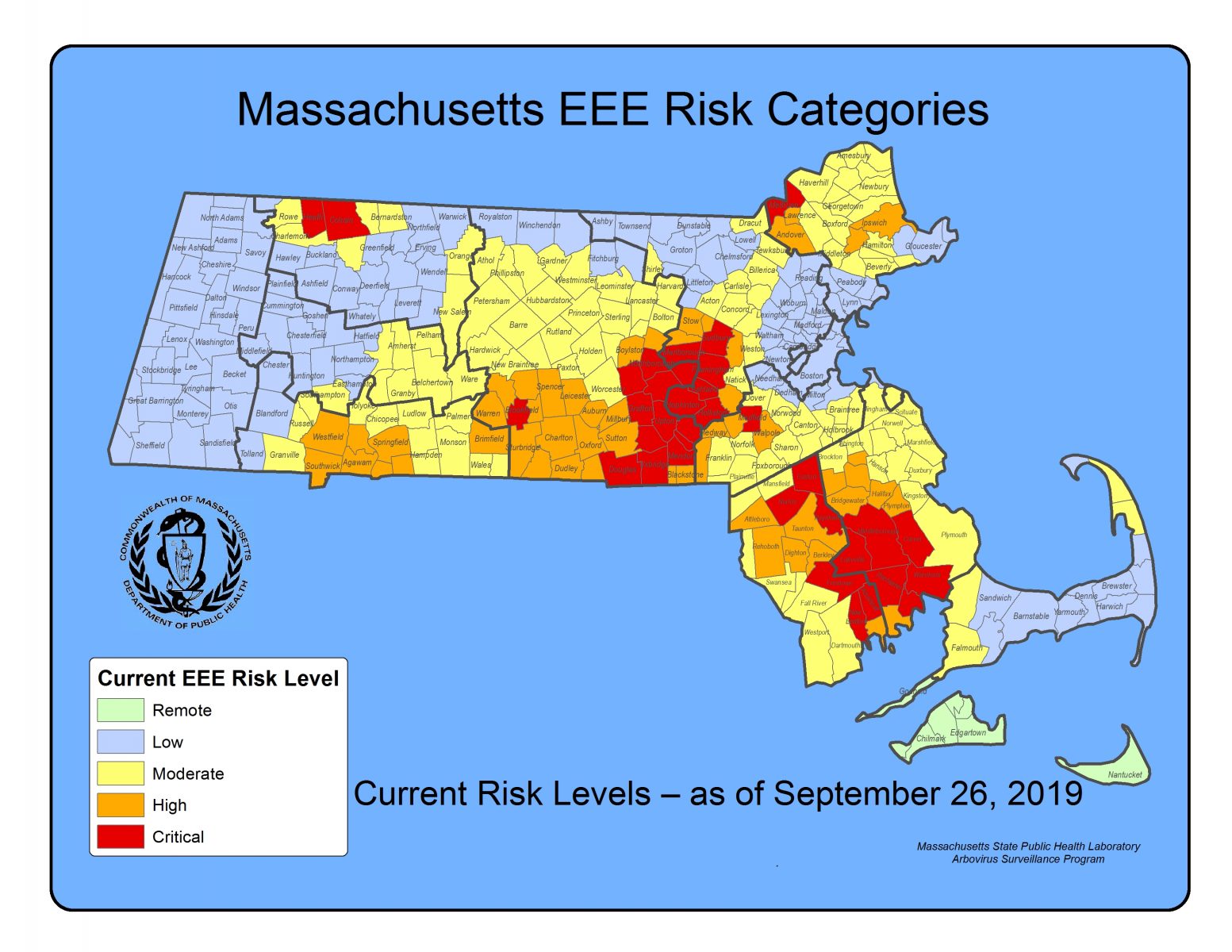 WESTFIELD – The 12th human case of Eastern equine encephalitis in Massachusetts – this one in Hampden County – was confirmed Thursday, prompting the announcement from Westfield’s Health Department that Westfield and surrounding communities are under a high risk level for EEE.
WESTFIELD – The 12th human case of Eastern equine encephalitis in Massachusetts – this one in Hampden County – was confirmed Thursday, prompting the announcement from Westfield’s Health Department that Westfield and surrounding communities are under a high risk level for EEE.
The communities of Agawam, East Longmeadow, Longmeadow, Southwick, Springfield, West Springfield and Westfield have been elevated to high risk.
Westfield Public Schools Superintendent Stefan Czaporowski said the schools are taking this seriously.
“Primarily this affects our athletic events,” said Czaporowski. “I have been working with AD Ryan Dunphy to develop a plan. Effective immediately, we will end all athletic practices by 6 p.m. and home games will be rescheduled as needed.”
Westfield High School’s Friday night football game was rescheduled to Saturday afternoon.
“Away games will continue but only if the district is not under an EEE warning,” Czaporowski said.
The Health and School departments will be monitoring the situation closely over the next few weeks.
Gov. Charlie Baker Sept. 26 reaffirmed his commitment to put together a broader mosquito control program next spring, according to State House News Service.
Baker has previously said the state would need to expand its mosquito control efforts geographically, writes SHNS reporter Matt Murphy. Baker repeated that on Thursday, the morning after the Department of Public Health confirmed the eleventh human case of EEE in Worcester County and the fourth death from the rare disease of an Essex County man.
“The bottom line is we’re going to have to have a much broader program geographically next year and we’re going to have to get a bunch of communities that have never been in the mosquito control business previously to get into it, so we have a lot of work to do between now and next year,” Baker told reporters.
The Department of Public Health later in the day reported a twelfth case in a woman in her 70s in Hampden County who had been hospitalized.
Seven states have reported at least 30 cases of EEE this year, the most human cases on record since the Centers for Disease Control began tracking the disease in the early 1960s. There are 35 communities now at critical risk, 53 at high risk, and 121 at moderate risk for the EEE virus in Massachusetts, according to DPH.
Changes in climate and bird migratory patterns may be to blame, Baker said.
“Given the spread of the disease which is now present in communities and counties way beyond what we typically see, we’re going to have to go back and build a plan for next spring that’s going to involve a lot more communities than we’ve had available to participate in this program previously,” Baker said.
State officials continue to remind residents to take personal precautions to prevent mosquito bites. Residents can learn more about EEE and ways to protect themselves on DPH’s website.
“Although mosquito populations are declining, the weather is keeping them active,” said State Epidemiologist Dr. Catherine Brown. “We continue to emphasize the need for people to protect themselves from mosquito bites.”








